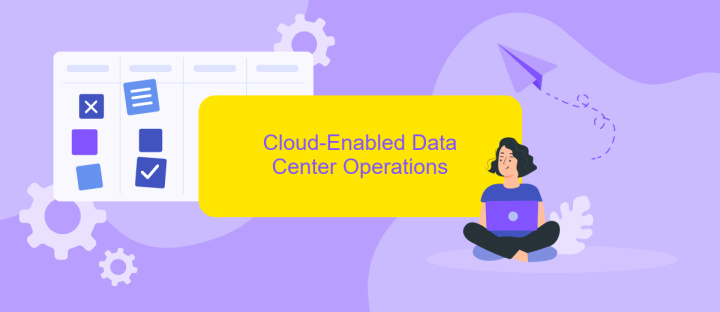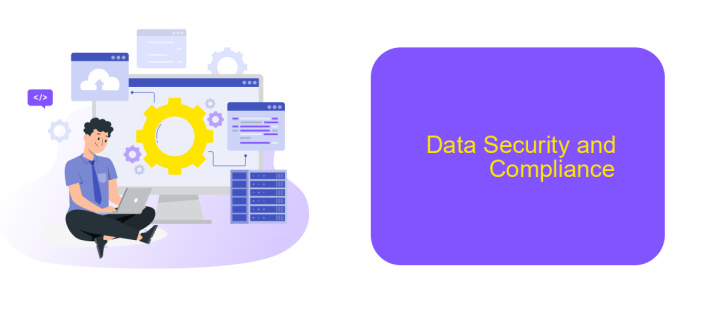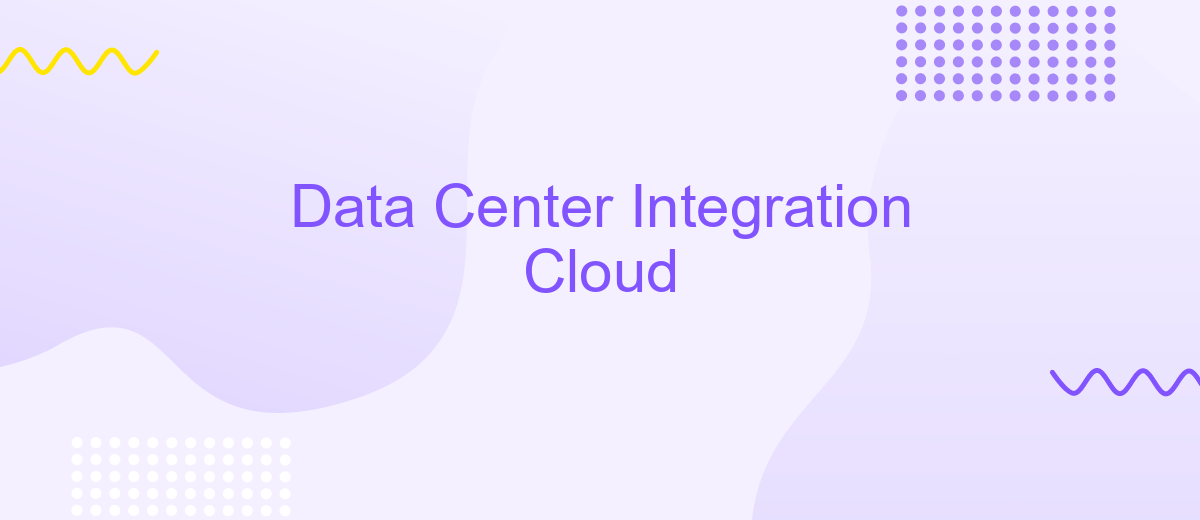Data Center Integration Cloud
In today's rapidly evolving digital landscape, data center integration with cloud technologies has become essential for businesses aiming to enhance scalability, efficiency, and security. This article explores the key benefits and strategies for seamlessly integrating traditional data centers with cloud solutions, ensuring robust performance and streamlined operations in an increasingly interconnected world. Discover how to leverage cloud integration to stay competitive and future-proof your IT infrastructure.
Data Center and Cloud Architectures
Data center and cloud architectures represent two distinct but increasingly complementary approaches to managing and deploying IT resources. Data centers are physical facilities that house servers, storage, and networking equipment, offering high control over hardware and security. On the other hand, cloud architectures provide scalable and flexible resources over the internet, reducing the need for physical infrastructure.
- Scalability: Cloud services offer on-demand scalability, allowing businesses to easily adjust resources based on demand.
- Cost Efficiency: Cloud solutions often operate on a pay-as-you-go model, reducing capital expenditure on hardware.
- Flexibility: Cloud environments support a wide range of applications and services, enhancing business agility.
- Security: Data centers offer robust physical and network security measures, critical for sensitive data.
Integrating data center and cloud architectures can optimize IT operations, leveraging the strengths of both environments. Tools like ApiX-Drive facilitate seamless integration by automating data transfer between disparate systems, enhancing workflow efficiency and ensuring real-time data synchronization. This hybrid approach enables businesses to maintain control over critical resources while benefiting from the cloud's scalability and flexibility.
Migration Strategies

When migrating to a Data Center Integration Cloud, it is crucial to develop a comprehensive strategy that minimizes downtime and ensures data integrity. Begin by assessing your current infrastructure, identifying critical applications, and determining their dependencies. This assessment will help prioritize which systems to migrate first and establish a clear timeline for the transition. Additionally, consider leveraging tools like ApiX-Drive to streamline the integration process, as it offers seamless connectivity between various applications and services, reducing the complexity of manual configurations.
Next, implement a phased migration approach to mitigate risks and allow for thorough testing at each stage. Start with non-critical systems to validate your migration strategy and identify potential issues early on. Throughout the process, maintain clear communication with all stakeholders and provide regular updates to ensure alignment. Post-migration, conduct comprehensive testing to verify that all systems are functioning correctly and that data integrity is maintained. Utilizing ApiX-Drive can further simplify ongoing integration management, providing a robust solution for continuous data synchronization and operational efficiency.
Cloud-Enabled Data Center Operations

Cloud-enabled data center operations provide businesses with the flexibility and scalability needed to meet evolving demands. By leveraging cloud technologies, companies can optimize their data centers to achieve higher efficiency and performance.
- Automated resource management: Cloud platforms can dynamically allocate resources based on current needs, reducing waste and improving efficiency.
- Enhanced security protocols: Cloud services offer advanced security measures, including encryption and access controls, to protect sensitive data.
- Seamless integration: Tools like ApiX-Drive facilitate the integration of various cloud services, ensuring smooth data flow and operational coherence.
Utilizing cloud-enabled operations in data centers allows for more agile and resilient infrastructures. With tools such as ApiX-Drive, businesses can effortlessly integrate multiple services, streamlining processes and enhancing overall productivity. This approach not only supports current operational needs but also positions companies for future growth and innovation.
Data Security and Compliance

Data security and compliance are critical aspects of any Data Center Integration Cloud. Ensuring that sensitive information is protected and regulatory standards are met is essential for maintaining trust and operational efficiency. Companies must implement robust security measures to guard against data breaches and unauthorized access.
Compliance with industry standards such as GDPR, HIPAA, and SOC 2 is mandatory for many organizations. These regulations dictate how data should be handled, stored, and transferred. Regular audits and assessments can help ensure ongoing compliance and identify potential vulnerabilities.
- Encryption of data both in transit and at rest
- Multi-factor authentication for access control
- Regular security audits and vulnerability assessments
- Compliance with international and industry-specific regulations
Services like ApiX-Drive can facilitate secure and compliant data integrations by providing automated workflows and real-time monitoring. This reduces the risk of human error and ensures that data is consistently handled according to best practices. By leveraging such tools, organizations can enhance their data security posture while streamlining their integration processes.


Emerging Trends and Best Practices
Data Center Integration Cloud is witnessing several emerging trends that are reshaping the industry. One notable trend is the increasing adoption of hybrid cloud models, which combine on-premises infrastructure with public and private cloud services. This approach offers greater flexibility and scalability, allowing organizations to optimize their workloads and reduce costs. Additionally, the integration of artificial intelligence (AI) and machine learning (ML) is enhancing data center operations by enabling predictive maintenance, improving energy efficiency, and optimizing resource allocation.
Best practices in this field emphasize the importance of robust integration tools and services. For instance, platforms like ApiX-Drive facilitate seamless integration between various applications and data sources, streamlining workflows and improving data accessibility. It is crucial to implement strong security measures to protect sensitive data during integration processes. Regularly updating and patching systems, conducting security audits, and employing encryption techniques are essential steps to safeguard data integrity. By staying abreast of these trends and adhering to best practices, organizations can effectively leverage Data Center Integration Cloud to drive innovation and operational efficiency.
FAQ
What is Data Center Integration Cloud?
Why is Data Center Integration Cloud important?
How can I automate data center integrations?
What are the key benefits of using a cloud-based integration platform?
How do I ensure data security in Data Center Integration Cloud?
Time is the most valuable resource in today's business realities. By eliminating the routine from work processes, you will get more opportunities to implement the most daring plans and ideas. Choose – you can continue to waste time, money and nerves on inefficient solutions, or you can use ApiX-Drive, automating work processes and achieving results with minimal investment of money, effort and human resources.

